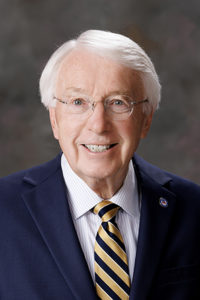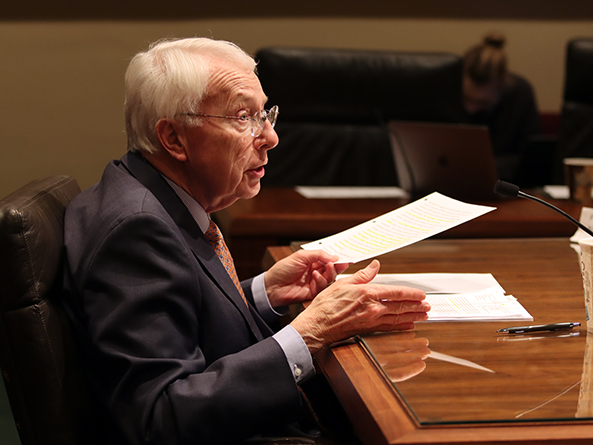Transitional health care for homeless adults proposed
The Health and Human Services Committee considered a bill Feb. 1 that would provide short-term housing and medical services for eligible adults experiencing homelessness.

LB905, introduced by Ralston Sen. Merv Riepe, would require the state Department of Health and Human Services to apply for a Medicaid waiver or state plan amendment with the federal Centers for Medicare and Medicaid Services by Jan. 1, 2025, to designate two medical respite facilities for homeless individuals in Nebraska.
The facilities — one located in a primary class city and the other in a metropolitan class city — would be reimbursed for services to qualified individuals. Lincoln is the state’s only primary class city and Omaha is the only metropolitan class city.
Riepe said the program is designed to provide a standard of care for those experiencing homelessness who are too ill or frail to recover on the streets, yet do not require hospital-level treatment. He said 11 other states have implemented similar legislation to assist the unhoused, signaling a growing recognition of the efficacy and value of such programs.
“By investing in medical respite care, we not only uphold our duty to provide compassionate care to those in need, but also stand to realize significant cost savings for our state,” Riepe said.
Linda Twomey, executive director of Siena Francis House, said her organization started a pilot program in 2020 to provide medical respite care to individuals experiencing homelessness. Testifying in support of LB905, she said homeless individuals stay an average of 1.6 days longer in the hospital and often spend their first day post-hospitalization in an unsafe environment.
“For individuals with homes, accessing care can be difficult,” Twomey said. “But for the homeless, the absence of a home exacerbates medical complexities and inflates health care expenses unnecessarily, leading to longer hospitalizations.”
Speaking on behalf of the Nebraska Hospital Association, Margaret Woeppel also testified in support of the measure. While the number of patients needlessly staying in hospitals has decreased, she said, there is work to do toward finding adequate placements for the state’s unhoused population.
In 2022, there were 5,580 patients in Nebraska who were discharged from hospitals to a state of homelessness, Woeppel said, with 55.7% of those patients located in Omaha and 22.5% in Lincoln.
“LB905 is an essential piece to allow hospitals to care for patients who are suffering from homelessness,” she said. “Medical respite care can be a solution for this population.”
No one testified in opposition to the bill and the committee took no immediate action on it.


